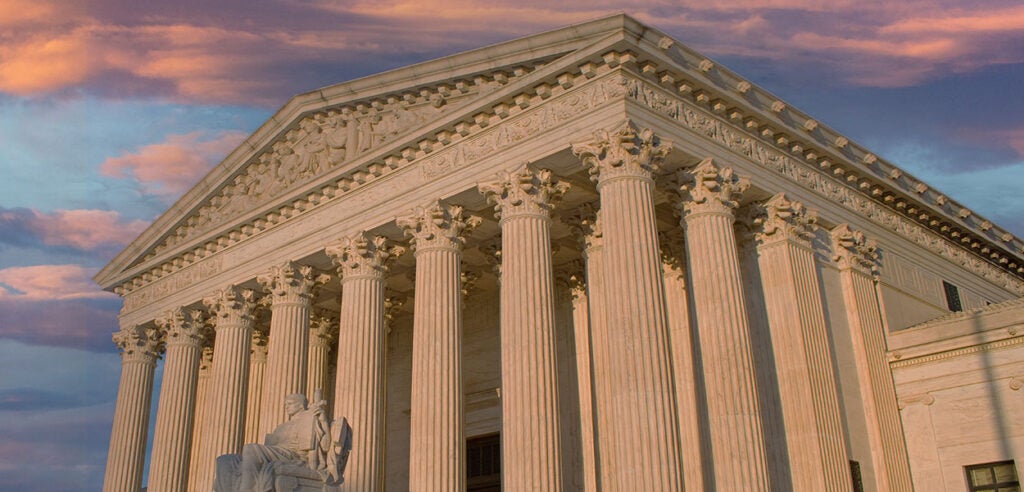The Supreme Court agreed Friday to hear a case challenging the federal ban on bump stocks, an accessory that increases a semiautomatic rifle’s rate of fire.
The U.S. Court of Appeals for the 5th Circuit struck down the rule earlier this year in Garland v. Cargill. The Supreme Court granted the government’s appeal of the ruling in a brief order.
The bump stock rule from the Bureau of Alcohol, Tobacco, Firearms and Explosives was proposed by the Trump administration in the aftermath of the 2017 mass shooting at an outdoor concert in Las Vegas, which killed 58 and wounded over 500.
“In defining the term machine gun, Congress referred to the mechanism by which the gun’s trigger causes bullets to be fired,” the 5th Circuit majority found in January. “Policy judgments aside, we are bound to apply that mechanical definition. And applying that definition to a semi-automatic rifle equipped with a non-mechanical bump stock, we conclude that such a weapon is not a machine gun for purposes of the Gun Control Act and National Firearms Act.”
In a separate case in April, the 6th Circuit also struck down the rule.
LEGAL ALERT: The Supreme Court has granted the cert petitions in a lawsuit challenging the federal bump stock ban and a First Amendment lawsuit involving the NRA’s speech. pic.twitter.com/lURyAGDFqL
— Firearms Policy Coalition (@gunpolicy) November 3, 2023
The Supreme Court previously declined to block the rule in 2019 and rejected two appeals by gun owners seeking to reverse it in 2022. The appeals court rulings this year striking down the rule created a split among the circuit courts.
Robert Leider, an assistant professor of law at George Mason University, told the Daily Caller News Foundation in October that the case centers on the intersection of administrative and criminal law rather than the Second Amendment.
“So the question at bottom is whether the agency can resolve the ambiguity in a way that expands the scope of the statute or in a way that is favorable to the government in a criminal prosecution and whether courts have to confirm it,” Leider said.
The Supreme Court is slated to hear another case Tuesday that challenges the federal law prohibiting individuals subject to domestic violence restraining orders from possessing firearms.
This article originally was published by the Daily Caller News Foundation
Have an opinion about this article? To sound off, please email letters@DailySignal.com, and we’ll consider publishing your edited remarks in our regular “We Hear You” feature. Remember to include the URL or headline of the article plus your name and town and/or state.
